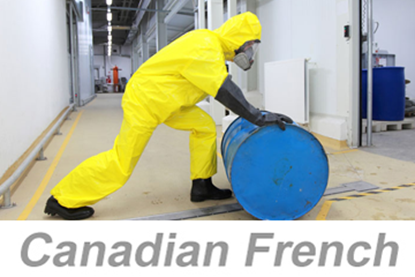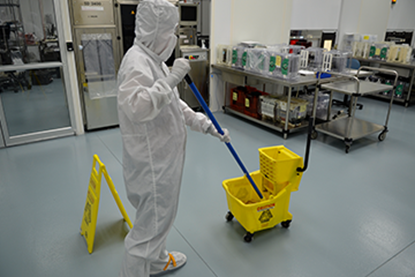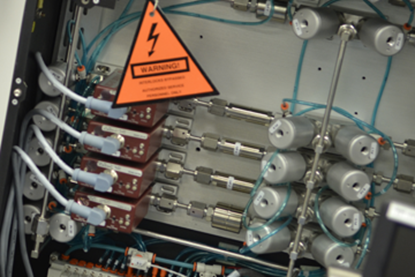You have no items in your shopping cart.
NON-OSHA
Excludes OSHA Content
Workplace Hazardous Materials Information System (WHMIS) Parts 1-2 (Canadian French) (IACET CEU=0.1)
Le Système d’information sur les matières dangereuses utilisées au travail (SIMDUT) du Canada rend l’information sur les matières dangereuses uniformément disponible à tous les travailleurs canadiens. Compte tenu de la quantité d’informations et le nombre de parties impliquées, cela peut être une entreprise complexe. Ce cours explique le fonctionnement du SIMDUT, comment le Système général harmonisé de classification et d’étiquetage (SGH) est aligné avec le SIMDUT, qui est responsable de diverses tâches en vertu du SIMDUT et comment chacun peut profiter pleinement de l’information sur les matières dangereuses à leur disposition. Ce cours couvre les règlements les plus récents du SIMDUT 2015. Les apprenants idéaux sont tous les employés.
$49.00
Environmental Responsibility, Parts 1-3 (US) (IACET CEU=0.1)
The purpose of this 3-part series is to help you work in an environmentally responsible manner and in compliance with all applicable environmental laws and regulations. These modules discuss environmental issues and goals, best management practices for dealing with those issues, and elements of an emergency action plan regarding spill and fire response and hazardous chemical storage. You are required to complete all courses and pass all assessments within this suite in order to receive the stated CEU Credits.
$59.00
SESHA: General EHS, Ergonomics and Semiconductor Safety (IACET CEU=0.1)
To stay safe at work, it is important that you know about the hazards in your environment and the practices and programs your employer has in place to keep you and your co-workers healthy and safe. These courses will help you understand workplace hazards and how to avoid them using controls. The courses are ideal for all semiconductor fabrication workers, including semiconductor fabrication supervisors and office workers.
$115.00
SESHA: Semiconductor Chemical Safety Including Toxic Gases (IACET CEU=0.2)
Semiconductor fabrication involves many hazardous liquid chemicals and gases that can be dangerous if people do not handle them properly. These courses will help you understand which liquid chemicals and gases you may encounter, what controls your employer has in place to minimize the danger and what you can do to remain healthy and safe. The courses are ideal for all semiconductor workers who work inside fabrication facilities.
$115.00
SESHA: Semiconductor Fabrication Worker Safety (IACET CEU=0.1)
Where does your job fit in with the entire semiconductor fabrication process? Take these courses to find out! You will learn about the steps of the process, the types of hazards involved in them and the controls in place to keep workers from being hurt. These courses are ideal for all semiconductor workers who work inside fabrication facilities.
$115.00
SESHA: Semiconductor Hazardous Energy (IACET CEU=0.1)
The energy used during the semiconductor fabrication process can be dangerous. Take these courses to learn about the practices and programs, such as lockout/tagout, that your employer expects you to use to remain safe when working with energized equipment. These courses are ideal for all semiconductor fabrication workers.
$115.00






